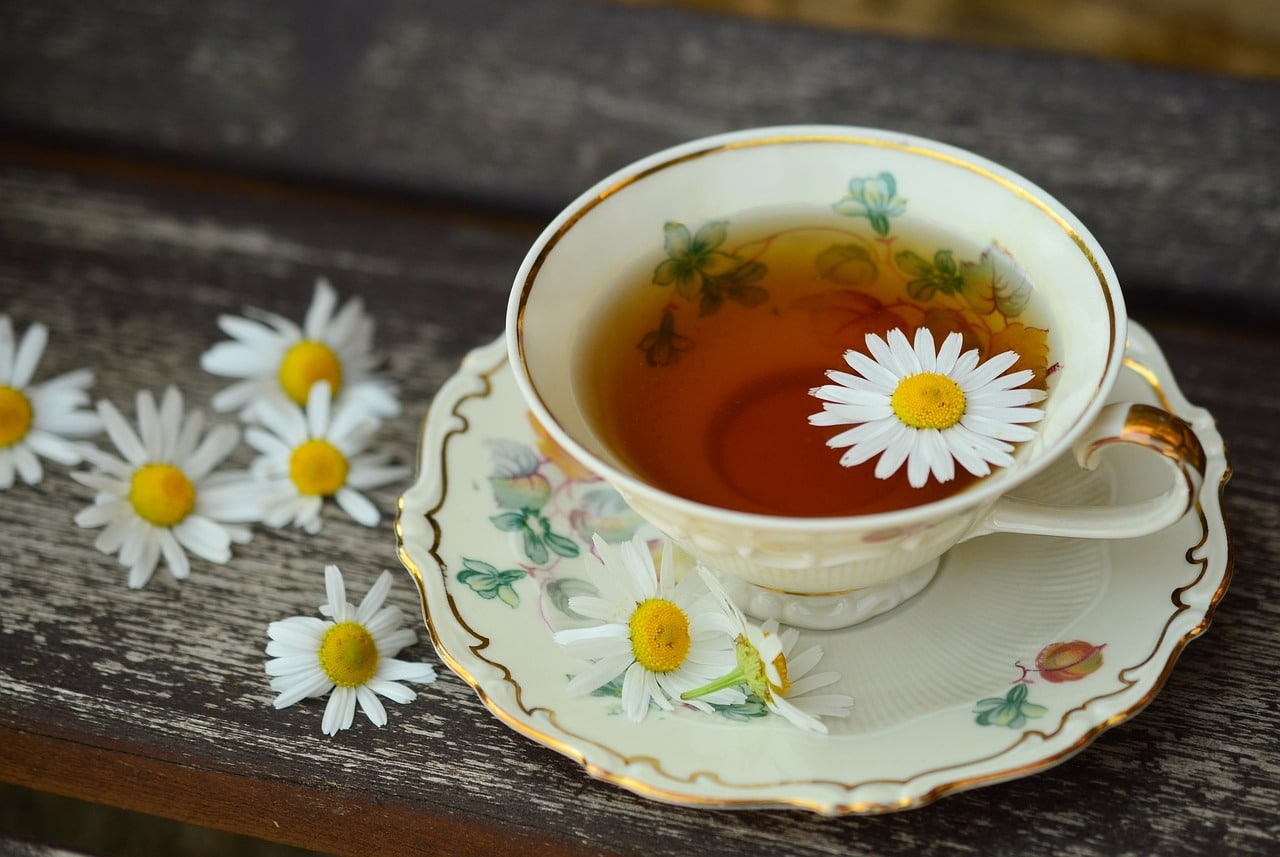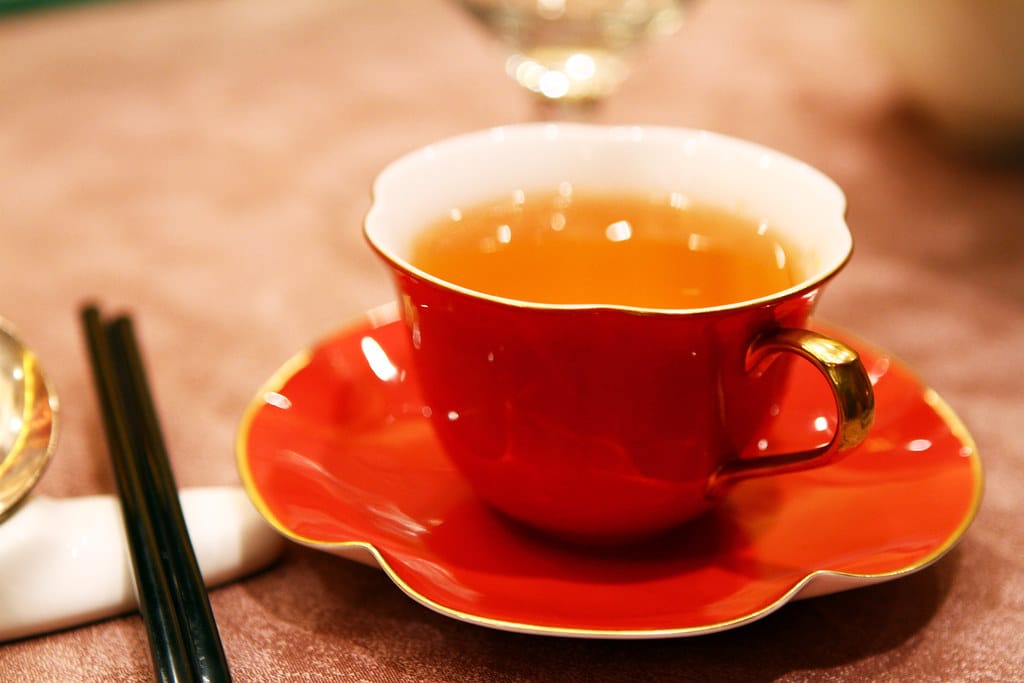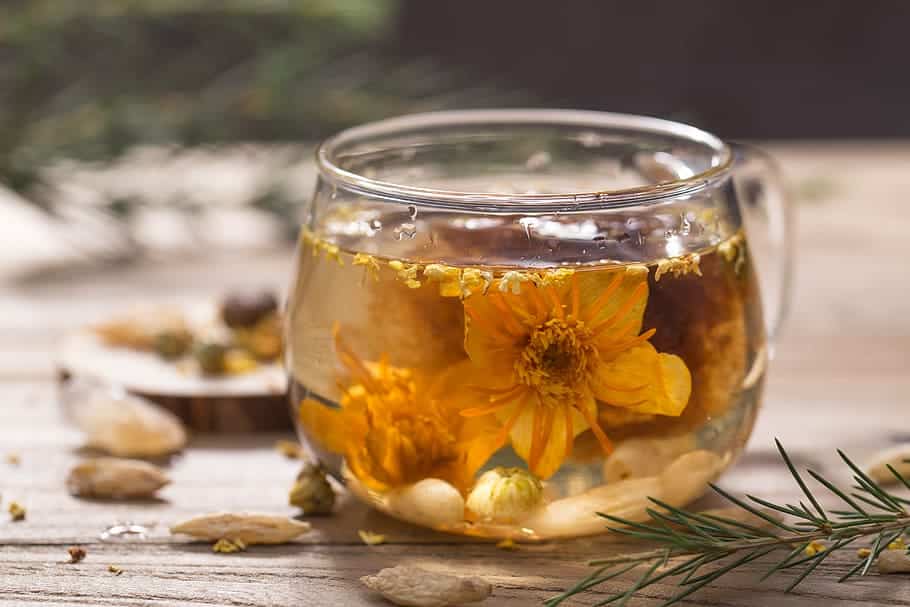For centuries, jasmine tea has been recognized for its holistic health benefits. From aiding in digestion to taking care of skin problems, jasmine has been praised as a natural remedy and alternative medicine with an array of health advantages. Most recently, curiosity surrounding the question ‘Does Jasmine Tea Have Caffeine?’ is on the rise. Are you curious to learn more about this fragrant flower infusion and its stimulating effects? If so, keep reading – we’ve got all the answers.
What Is Jasmine Tea And Its Origins?
Jasmine tea is a type of scented tea made from green and/or white tea leaves combined with jasmine flowers. It originates from China and is known for its rich flavor and delicate fragrant aroma. Jasmine tea has long been used in traditional Chinese medicine, as it is believed to help boost immunity, aid digestion, reduce inflammation, and even fight cancer cells.

The brewing process begins by adding freshly picked jasmine blossoms to the base green or white tea leaves in order to impart the floral scent and flavor. The infused tea then undergoes multiple rounds of oxidation before being dried out and stored until use. The resulting brew yields a light yellow-green hue with refreshing undertones of sweet jasmine blossoms.
Ultimately, jasmine tea is a delicious and aromatic beverage that can provide both energizing and calming benefits. As such, it is no surprise that this age old infusion has stood the test of time as one of the most beloved teas in China and around the world. Whether you are looking for a refreshing caffeine-free drink or an invigorating tea to get your day started off right, there is sure to be a type of jasmine tea that suits your needs.
Does Jasmine Tea Have Caffeine?
Does Jasmine Tea Have Caffeine? Jasmine tea does contain caffeine, although the amount can vary depending on the type of jasmine tea used as well as how it is prepared. Green or white teas typically have higher levels of caffeine than black teas due to their shorter oxidation times and therefore, jasmine green or white teas could potentially have more caffeine than a jasmine black tea. Generally speaking, a cup of jasmine tea contains between 15-30mg of caffeine per 8oz (240mL) serving size.
However, this amount is still significantly lower compared to coffee which can pack up to 100mg of caffeine per 8oz serving size. Consequently, jasmine tea is still considered to be a mild stimulant and can help provide a slight boost of energy. As such, it is ideal for those looking for a refreshing and energizing beverage without the strong stimulation that coffee provides. It is also worth noting that decaffeinated jasmine teas are widely available if you would like to avoid any caffeine content altogether.
Different Types Of Jasmine Tea:
Depending on the type of tea base used, jasmine tea can come in various forms. For instance, green jasmine teas are produced with high-quality Chinese green teas such as Longjing or Gunpowder varieties while white jasmine teas are processed with delicate silver needle and/or white peony tea leaves.
Oolong and black teas can also be scented with jasmine flowers to produce unique blends that boast a bolder flavor profile. Some of the most popular varieties include Jasmine Dragon Phoenix Pearl Tea, which is made from tightly rolled oolong leaves combined with buds of fresh jasmine blossoms, and Jasmine Silver Needle Tea which is composed of only top grade silver needle white tea leaves.
Caffeine In Jasmine Tea Vs Other Tea:
Although all types of tea contain some caffeine, the amount can vary significantly based on the type and brewing process used. Generally speaking, true teas (green, white, oolong and black) tend to have higher levels of caffeine content than herbal infusions such as chamomile and rooibos.
Specifically, green teas typically have more caffeine than white teas which in turn have more caffeine than oolong or black teas. On average, an 8oz cup of jasmine green tea contains between 15-30mg of caffeine while a cup of jasmine white tea contains roughly 10-15mg of caffeine per serving. For comparison’s sake, a cup of coffee usually contains up to 100mg of caffeine.

How To Make Jasmine Tea At Home?
Making jasmine tea at home is a simple and enjoyable process that requires only minimal equipment. The most important aspect of the brewing process is to start with high-quality loose leaf teas as well as freshly picked jasmine blossoms.
For best results, it is highly recommended to use a traditional Chinese teapot or gaiwan (lidded bowl) for steeping the infusion. To begin, measure out 1 teaspoon of loose leaf tea per 8oz cup of water and add it to your infusion vessel. Next, heat up some fresh cold water until just before boiling point (~205°F/96°C). Once heated, pour the hot water over the leaves and cover with lid for 3-4 minutes. Once time is up, strain the liquid and enjoy your freshly brewed jasmine tea!
Health Benefits Of Drinking Jasmine Tea:
In addition to its pleasant flavor, jasmine tea is also highly nutritious and can provide numerous health benefits. For instance, it contains a variety of bioactive compounds such as polyphenols and caffeine which may help reduce inflammation, improve digestion, boost immunity and even aid in weight loss. Furthermore, certain varieties such as Jasmine Dragon Phoenix Pearl contain high levels of antioxidants which can help protect against free radical damage and potentially even prevent cancer.
Jasmine tea is also naturally low in calories making it an ideal drink for those looking to maintain a healthy lifestyle. Finally, drinking jasmine tea has been associated with improved mental clarity and focus due to its calming yet energizing effects. As a result, it is often used to help relieve stress and anxiety.
Storing Suggestion For Jasmine Tea:
When storing jasmine tea, it is important to keep in mind that freshness is key. This means that it is best to buy small quantities of tea and store them in a cool, dark place. Moreover, it is highly advised against keeping the tea leaves exposed to air or heat as this can affect their flavor and aroma.
If stored correctly, most types of jasmine tea (particularly green teas) will usually stay fresh for up to 6 months while oolong and black varieties may last up to 1 year. Ultimately, the shelf life of any type of jasmine tea will depend on its quality as well as storage conditions so take care when selecting your favorite blends.

How Much Jasmine Tea For A Day?
Though it may vary depending on individual tastes and preferences, most health professionals recommend drinking no more than 4 cups of jasmine tea per day. As mentioned earlier, certain types of this tea can contain a significant amount of caffeine and consuming too much of it can lead to unpleasant side effects such as irritability, insomnia and headaches. In addition, excessive consumption has been linked to a higher risk of developing certain types of cancer so be sure to stick to the recommended daily servings! Finally, if you’re ever in doubt about your caffeine intake or have any concerns related to your health, we highly advise consulting with your physician before making any drastic changes.
Conclusion: Does Jasmine Tea Have Caffeine?
In conclusion, Does Jasmine Tea Have Caffeine? depending on the type of tea used. However, this amount is still lower compared to coffee which usually contains up to 100mg of caffeine per serving size. As such, it is an ideal drink for those looking for a mild energizing beverage without the strong stimulation that coffee provides. Furthermore, there are various types of jasmine teas available ranging from green and white teas to black or oolong blends – so no matter what you’re looking for, you’ll be sure to find something to suit your taste. More posts like this in naanonbroughton.com
FAQ Caffeine In Jasmine Tea
Does jasmine tea have high caffeine?
“Discover the caffeine content in your daily cup of jasmine tea – with variation determined by brewing method – usually totaling only one-third that of coffee. Opt for green tea for even less caffeine than black tea.”
Does jasmine tea keep you awake?
Featuring calming scents, this delicate tea can help you relax and unwind. Plus, its unique blend of compounds – including l-theanine- can help reduce stress and anxiety. So, sit back, enjoy a cup of Jasmine Tea and let tranquility wash over you.
How much caffeine is in a jasmine tea bag?
Savor the delicate and fragrant taste of jasmine tea without the worry of caffeine! Pure jasmine tea has zero caffeine. But the blend is widely known to complement other teas like green tea and offer an unforgettable taste experience. This flavorful infusion of jasmine tea is a must-try for all tea lovers.
Is jasmine tea good for sleep?
Sleep better with jasmine tea! This natural relaxant has a calming effect on the mind and body, easing restlessness, irritability, and insomnia. Its soothing scent can even be more effective than sleeping pills. Plus, Jasmine tea can also help alleviate muscle tension. Give it a try and get the restful sleep you deserve.
Who should not drink jasmine tea?
Is jasmine tea right for everyone? While it’s generally safe to drink, people who are sensitive to caffeine or at risk of iron deficiency should be mindful of their consumption. Find out if jasmine tea is the right choice for you.
Which has less caffeine jasmine or green tea?
Find out which tea contains less caffeine between jasmine and green tea. While green tea provides a natural source of caffeine with around 28mg per serving, jasmine tea is considered a low caffeine option compared to other teas and energy drinks.
Is jasmine caffeine free?
Discover if jasmine tea is caffeine-free or not. Although the jasmine flower itself is caffeine-free, the amount of caffeine in the tea varies based on the tea type. A cup of green tea with jasmine has less caffeine than black tea, with only about 28 mg per 8 oz serving. Learn more about the caffeine content in tea by exploring further.
Does jasmine tea break a fast?
Attention fasting enthusiasts: wonder no more if jasmine tea breaks your fast! Fear not, because it does not. Not only is it safe to drink during your fasting period, but it is also recommended for consumption during eating periods, too. Keep sipping on that soothing jasmine tea with peace of mind.
When should I drink jasmine tea?
Discover the optimal time to savor jasmine tea and enjoy its benefits. Are you concerned about caffeine content? It’s best to indulge in this fragrant tea during the day if you’re sensitive to caffeine.
Is jasmine tea the same as green tea?
Discover the truth about jasmine tea and green tea. While jasmine tea is often made with a green tea base, some brands offer jasmine-infused black and white teas too. Generally, green tea has a lower caffeine content per cup than black tea, but more than white tea.

Bill Dawers is the CEO of naan on broughton, a contemporary Indian restaurant in Savannah, GA. The restaurant opened a few weeks ago and has already found a fan in City Talk columnist Bill Dawers. The restaurant sits right across the street from the Marshall House on Broughton Street, joining the large number of hot spots on the shopping street.

Related Posts:
How Long To Cook Frozen Chicken In A Crock Pot: A Comprehensive Guide
How To Make 3/4 Cup With Measuring Cups? – A Comprehensive Guide
Can you eat Peanut shells? Cracking the Mystery
Does Jasmine Tea Have Caffeine? Learn About Jasmine Tea